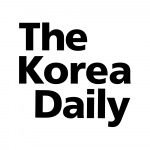![As the United States prepares to begin tariff negotiations with China on May 10, Chinese-manufactured car seats, diapers, and baby bottles are displayed in the baby products section of a Target store in Virginia, near Washington, D.C. [Taehwa kang]](https://www.koreadailyus.com/wp-content/uploads/2025/05/0508-carseat.jpg)
U.S. parents and retailers are voicing growing frustration over new baby product tariffs that have sent prices for essentials like strollers, car seats, and baby bottles soaring. The backlash follows President Donald Trump’s decision to impose a 145% tariff on Chinese-made goods—many of which dominate the baby product market.
At a modest baby supply store in a working-class neighborhood of Washington, D.C., shop owner Elizabeth Miller (alias) expressed dismay. “Car seats and diapers aren’t luxuries,” she said. “This is a death sentence for middle-class parents.” Miller, whose shelves are lined with Chinese-made car seats, strollers, walkers, and feeding items, added, “Without car seats, who can guarantee a child’s safety in a crash?”
U.S. baby goods rely heavily on China
According to the Juvenile Products Manufacturers Association (JPMA), more than 70% of baby products sold in the U.S. are made in China. The dependency is even higher for specific items: 98% of car seats, 97% of strollers, 94% of cribs, and 93% of walkers are imported from Chinese factories.
With tariffs now in effect, retail prices are expected to double. However, moving production out of China is not a simple fix. Joshua Thompson, who oversees baby products for Target in Arlington, Virginia, explained that safety inspections must occur before products hit the market—and most testing facilities are located near Chinese manufacturers. “Relocating production overnight just isn’t possible,” he said.
Thompson added that a full disruption in Chinese supply could leave U.S. parents without access to basic necessities. “If this continues, parents may struggle to find even diapers or bottles,” he said. “Right now, the best advice I can give customers is: buy now.”
![As tariff negotiations with China are set to begin on May 10, Chinese-made baby bottles are displayed in the baby products section of a Target store in Virginia, near Washington, D.C. [Taehwa kang]](https://www.koreadailyus.com/wp-content/uploads/2025/05/0508-feedingbottle.jpg)
Parents brace for shortages and inflated prices
Shoppers are already responding. Turner Jackson, a servicemember preparing for his second child, was in-store browsing baby gear. “I’m wondering if I’ll have to go secondhand,” he said. “This policy is insane.”
Nearby, Mateo Garcia, dressed in paint-stained work clothes, was bulk-buying diapers. “Prices are already too high, and they’ll only rise,” he said, offering to buy any unused baby goods the reporter might have.
Political pressure mounts in Washington
As formal U.S.–China tariff talks are set to begin May 10 in Switzerland, baby products have emerged as a flashpoint. At a House Ways and Means Committee hearing, Treasury Secretary Scott Bessent faced sharp criticism from Democratic lawmakers who argued the tariffs threaten working families.
Though initially evasive, Bessent eventually confirmed that tariff exemptions for baby products are “under review,” but warned that negotiations remain at an early stage.
A diplomatic source noted that similar exemptions had been granted in the past—such as for iPhones and cars—after Trump reversed course under domestic pressure. “Essential goods like baby products could weaken the U.S. bargaining position ahead of talks,” the official said.
The Chinese Ministry of Commerce claimed Washington had initiated the negotiations, stating it had agreed to meet in light of industry appeals and global expectations.
But President Trump pushed back, saying, “Did China say we started it? They should check their records.” He insisted he had no plans to reverse the tariff hike, adding, “We were losing a trillion dollars a year to China. Now we’re losing nothing.”
BY TAEHWA KANG [thkang@joongang.co.kr]




